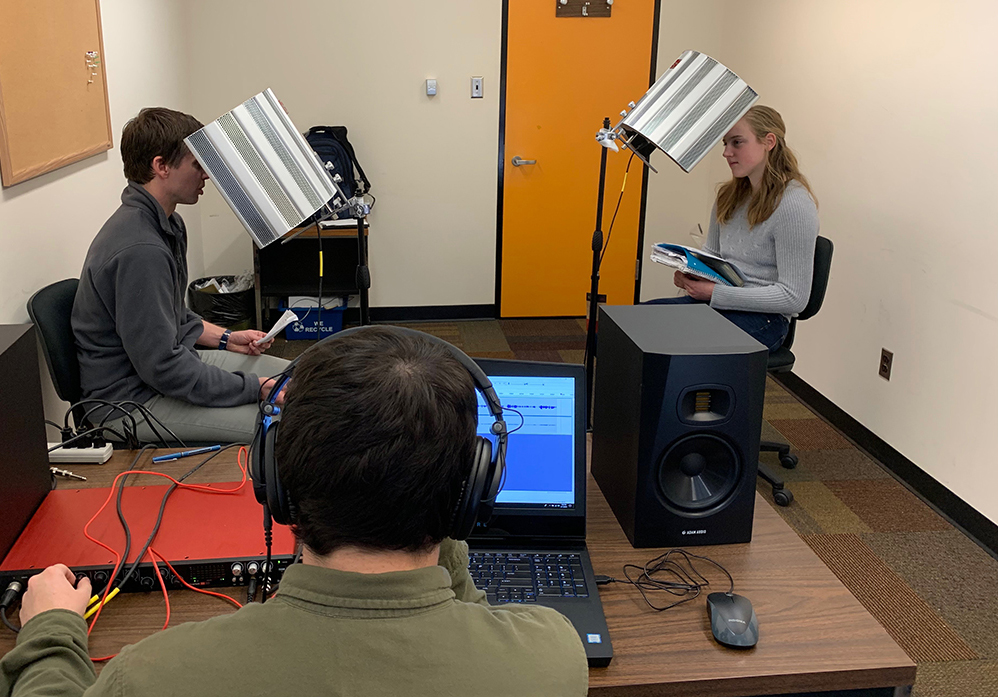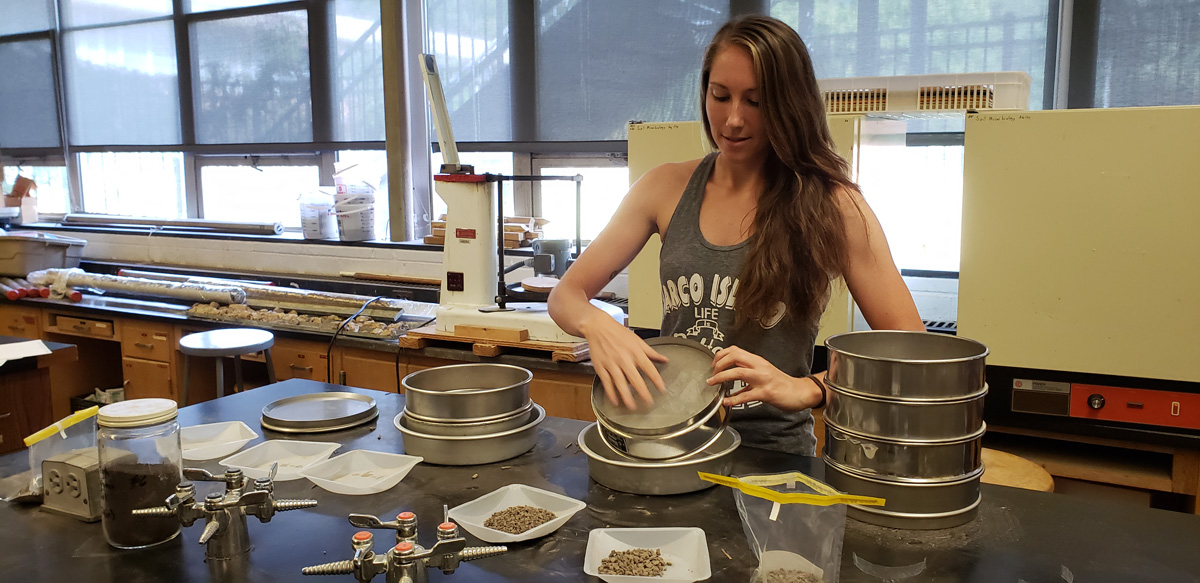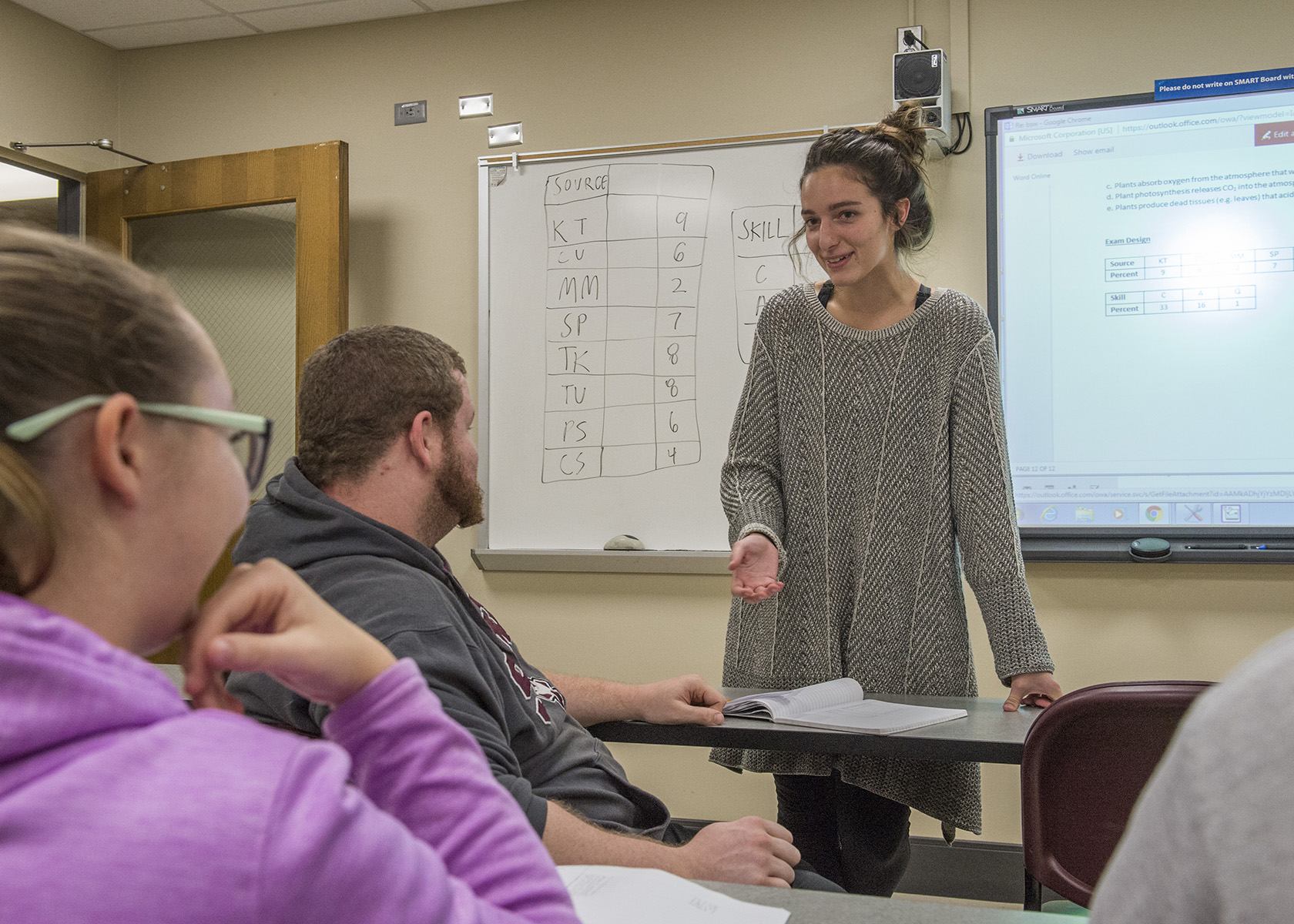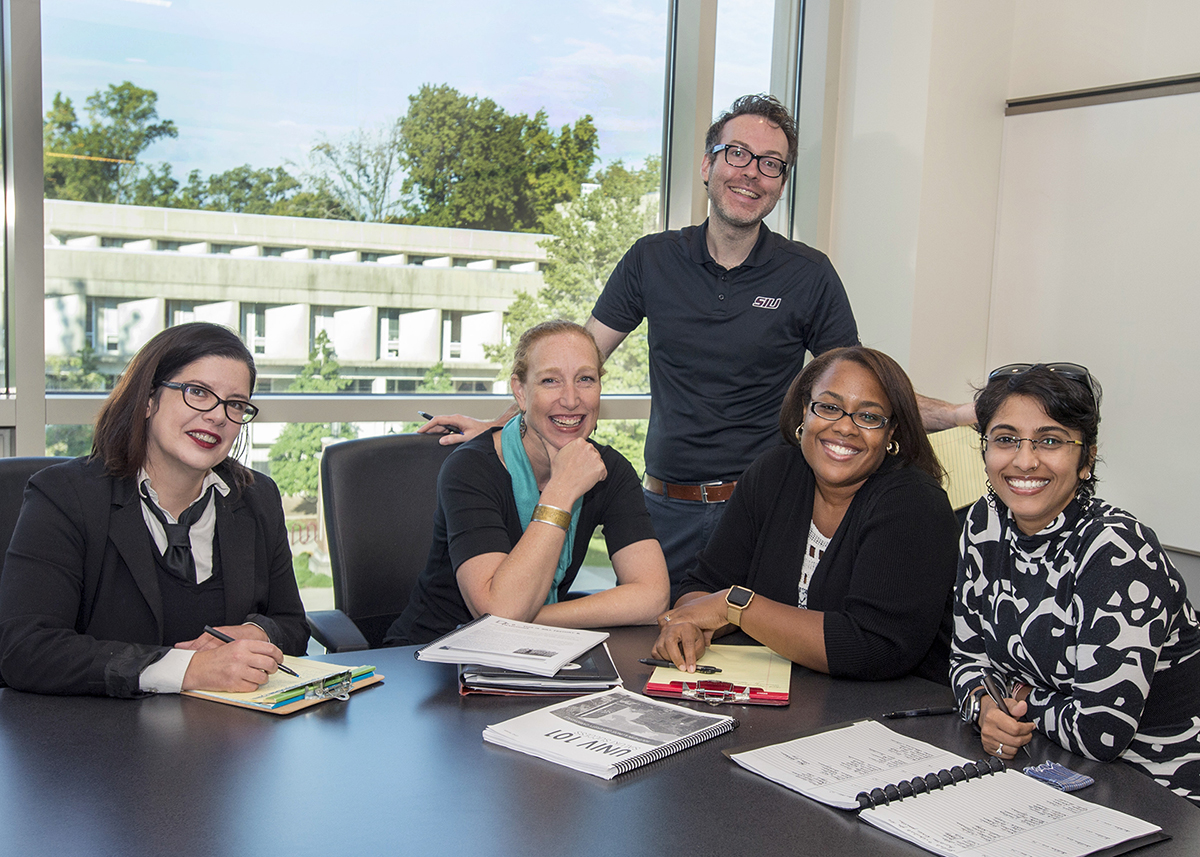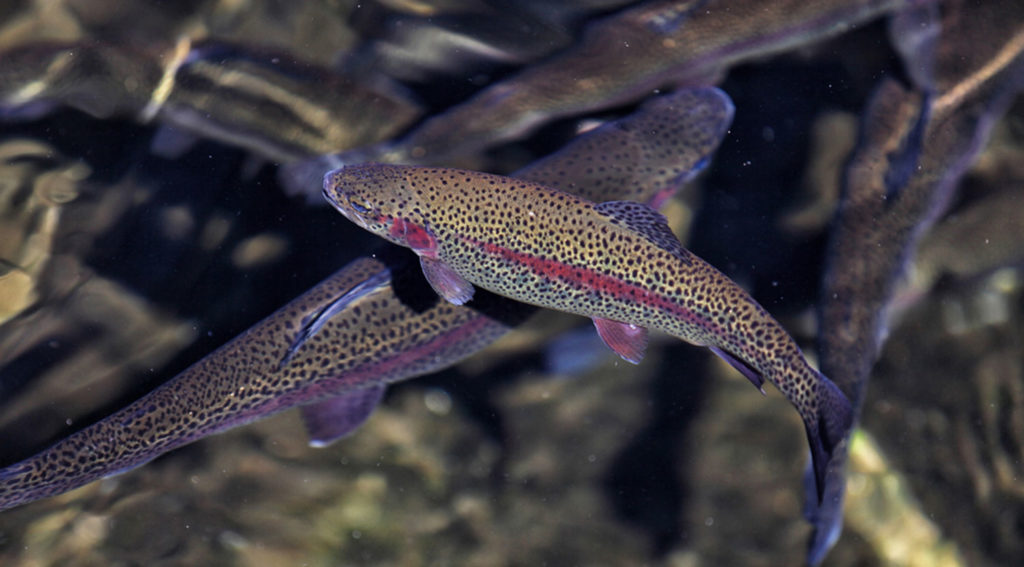
The phrase, “you are what you eat” is never more true than when it comes to eating fish. With 20,000 metric tons of rainbow trout produced in the U.S. in 2017, understanding the nutritional makeup of the common fish is more important than ever.
One Southern Illinois University Carbondale researcher is undertaking the task by launching a project to understand the nutritional differences between conventionally fed trout and those with a vegetarian diet.
“My focus is on animal nutrition and understanding how what we feed the animals affects our own nutrition down the road,” Booth said.
Animal nutrition affects human nutrition
For Sarah Booth, senior in the Animal Science degree program, animal nutrition directly influences the overall health of our society.
“I have always been interested in animal nutrition, because I work in animal rescue and I have seen so many animals that have really bad food allergies,” Booth said. “When you look at the ingredients they put in food, it’s usually not that healthy.”
When it comes to working on nutrition in agriculture animals, Booth refers back to her experiences growing up with raising chickens and cows.
“What we ate growing up doesn’t taste anything like what we get at the grocery store,” Booth said. “That built an interest in me, because what you feed the animals can change the way they taste. I also suspect it changes how healthy it is for us to be eating it also.”
Starting with pigs
When Booth first came to SIU, she jumped into a research project pertaining to nutrition in pigs. Working as a research assistant under Hallie Johnson, Booth and the rest of the team looked at a specific amino acid supplemented to lactating sows, evaluating how it affected their overall body condition and breed back intervals.
A referral from that study put Booth in touch with two SIU researchers and they decided to try a similar approach with fish. Booth joined the team recently, earning a REACH award for the project. The bulk of the study will begin in the upcoming fall semester.
Study examines nutrition in rainbow trout
Fish are perfect for this research because of the environmental impact from the way fish are farm-raised, Booth explained. For Booth, the present trends are not sustainable long-term.
“Currently they are taking a lot of fish from the ocean and grinding them up into fish food, to feed them to the fish they are farm raising,” Booth said. “They do it to provide more fish to more people, but long-term it has its own problems.”
While filler feeds, such as corn and soybeans, are a popular addition to farm-raised trout, little is known about the impact of these adjustments. Booth’s study will look at conventionally farm-raised trout compared to those fed a full vegetarian diet.
“Trout are not vegetarian at all, but we are looking to see how this adjustment changes the overall ash, lipid, crude protein, free amino acids, free fatty acids, n-3 to n-6 fatty acid ratios, DHA and EPA content,” Booth said.
The team will examine vegetarian fed rainbow trout, sourced from California, in comparison with both conventionally farm-raised trout and wild trout. Booth’s goal is to look at the compositional differences in the fish and determine if the industry is heading in the right direction.
Beyond conducting proximate analysis to understand the composition of the fish, the project also includes a sensory study to gauge the taste of the vegetarian-fed fish in comparison with the conventional methods.
For the sensory study, the team is evaluating the look, taste and smell of the fish to evaluate how consumers will react to the changes. Booth hopes to supply actionable information for the fish industry to utilize for future developments.
“If we can make a food the fish will eat and it turns out to make a healthier product for the U.S. consumer, that’s great,” Booth said. “But right now we don’t really know. People are just changing formulas based on a feeling. There is no clear science behind it at this time.”
The study will not only provide more information about aquaculture diets, but it will also offer a better understanding of whether or not a trout’s diet affects the public’s preferences.
Staying focused on animals
Booth came to SIU after working as a voice engineer for Cisco Systems for 17 years. Her passion for animals kept her involved in animal rescues for years, before she finally made the decision to pursue her dream of being a veterinarian.
She came to SIU for the pre-vet degree program and quickly found herself immersed in agriculture research. Once she completes her bachelor’s degree, she plans to attend veterinary school in Texas, near where she is currently living.
Her focus remains centered on rural areas that need additional veterinary support, specializing in smaller livestock.
